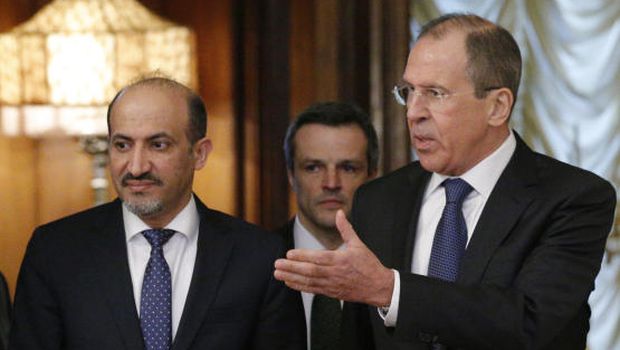To understand the recent changes in Syria, we may have to re-evaluate the political and military situation there. We may also have to ask the following question: if Russia hadn’t decided to support Bashar Al-Assad’s regime, would this have changed the course of the Syrian revolution?
In regards to Syria, the Russians have played a major political role, one that outstrips any military impact their support has made, though this should not lead us underestimate the massive support which Moscow has given Damascus to help it defeat opposition forces in many rebellious areas. However, Assad could have acquired advanced weapons from the warehouses of his major ally, Iran, which has in effect handled and coordinated all of Syria’s defensive needs, arranging the procurement and financing of weapons in international markets through different methods.
The most important role Russia has played is political—they have succeeded in obstructing and sabotaging various international political projects. They also used their veto power to obstruct decisive UN Security Council resolutions and made it easier for Western actors not to support the Syrian opposition. Therefore, we can see that Moscow has, for more than three years, played a dangerous game by obstructing change in Damascus. Moscow has helped prolong Syria’s humanitarian tragedy, a tragedy that the region has not hitherto seen the likes of.
The most important role Russia has played is political—they succeeded in obstructing and sabotaging various international political projects. They also overindulged in using their veto power to obstruct decisive UN Security Council resolutions and made it easier for hesitant and opposing Western parties not to support the Syrian opposition. Therefore, we can see that Moscow has, for more than three years, played a dangerous game by obstructing change in Damascus. Moscow is behind the extension of the Syrian humanitarian tragedy, a tragedy which the region has not hitherto seen the likes of.
Burhan Ghalioun, a member of the Syrian National Coalition, has rightly criticizes his comrades in the Syrian opposition for boarding the first plane to Moscow whenever they receive an invitation, harboring the delusion that President Vladimir Putin has changed his mind and is willing to cooperate.
Ghalioun said: “Russia’s stance on Assad has never changed. However, some of us don’t understand the meaning of the Russians’ statements. Since the first meeting with them in 2011, after the establishment of the [Syrian] National Council, Russian Foreign Affairs Minister Sergei Lavrov said they’re not married to Assad and they don’t have special relations with him, and that Assad has in fact visited Western countries more than they ever have.”
What Ghalioun is saying here is that when the Russians indicate that they are not defending Assad and that they do not back him in particular, they don’t actually mean they are willing to abandon him.
The Russians mince their words but their stance is always the same. They are with Assad as long as he’s alive and in the presidential palace in Damascus. Regional states communicate with Moscow and offer their services in the hope that the Russian Federation will soften its stance, but this has not yielded any results worth mentioning. Even Moscow’s stance regarding Egypt is a foregone conclusion—it’s with Cairo against Washington, or rather with the standing regime. However, thanks to the dangerous challenge that the Russian government faces due to the Western economic sanctions, Russia is not a party that deserves all the attention from the Syrian opposition it has received. Russia will not alter its stance in Syria or toward any other zone of conflict. And as Ghalioun says: “In every meeting with Lavrov, the Syrian opposition falls in the trap and spreads illusions again before realizing Moscow’s trick and deceit. Moscow has not changed its stance.”
The opposition’s best option is to properly organize its ranks and go all in on the military effort on the ground in Syria. It is the only thing that will get the Russians and the Americans to listen to them. The Russian and American governments, faced with a choice between Assad and the terrorists, have no other choice but to deal with the opposition.

Why would they? Until now he is the only leader Syrians have.